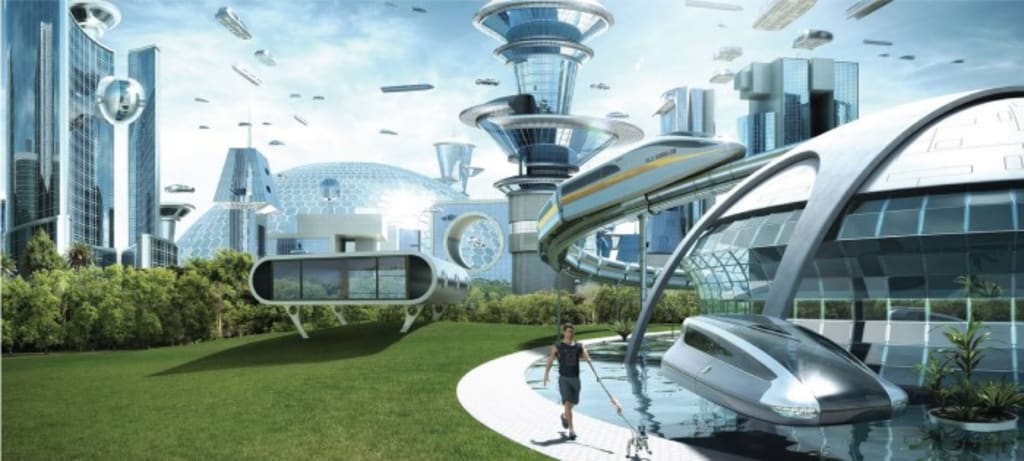
The advancement of technology in the world is a trajectory that promises both extraordinary opportunities and formidable challenges. As we move forward, several key trends are likely to shape the future landscape of technology and its impact on society.
One of the most significant developments on the horizon is the continued proliferation of artificial intelligence (AI). AI has already made considerable strides in various domains, from natural language processing and image recognition to autonomous vehicles and medical diagnostics. In the future, AI is poised to become even more integrated into our daily lives, transforming industries and reshaping the nature of work.
With the advent of AI, automation is expected to accelerate across a wide range of sectors, leading to increased efficiency and productivity. Tasks that are routine or repetitive in nature are likely to be automated, freeing up human labor for more creative and strategic endeavors. However, this shift towards automation also raises concerns about job displacement and income inequality. It will be imperative for policymakers to address these challenges through measures such as reskilling programs and social safety nets.
Another area of technological advancement with far-reaching implications is biotechnology. Breakthroughs in areas such as genomics, gene editing, and regenerative medicine hold the promise of revolutionizing healthcare and extending human lifespan. Diseases that were once considered incurable may become manageable or even eradicated altogether. Additionally, advancements in biotechnology could lead to personalized medicine tailored to individual genetic profiles, improving treatment outcomes and reducing adverse reactions.
However, the intersection of technology and biology also raises ethical and societal concerns. Questions surrounding genetic privacy, the equitable distribution of healthcare resources, and the potential misuse of biotechnologies must be carefully addressed to ensure that these advancements benefit humanity as a whole.
The future of transportation is also poised for dramatic change with the rise of electric and autonomous vehicles. Electric vehicles (EVs) are becoming increasingly mainstream as concerns about climate change and air pollution drive the transition away from fossil fuels. As battery technology continues to improve and charging infrastructure expands, EVs are likely to become more affordable and accessible to a broader segment of the population.
At the same time, autonomous vehicles (AVs) have the potential to revolutionize transportation systems by reducing accidents, alleviating traffic congestion, and improving the efficiency of urban mobility. However, widespread adoption of AVs will require overcoming technical, regulatory, and societal hurdles, including concerns about safety, liability, and the displacement of jobs in the transportation sector.
The future of work is another area that will be profoundly impacted by technological advancements. The rise of AI and automation is expected to reshape the labor market, leading to changes in the nature of jobs and the skills required to succeed in the workforce. While some jobs may be rendered obsolete by automation, new opportunities will emerge in fields such as data science, cybersecurity, and human-machine collaboration.
To navigate this shifting landscape, individuals will need to embrace lifelong learning and adaptability, continually acquiring new skills to remain competitive in the job market. Additionally, policymakers will need to prioritize investments in education and training programs that equip workers with the skills needed for the jobs of the future.
The proliferation of technology also raises important questions about privacy, security, and digital rights. As more aspects of our lives become interconnected and digitized, safeguarding personal data and protecting against cyber threats will be paramount. Governments, businesses, and individuals must work together to develop robust cybersecurity measures and enact policies that balance the benefits of technology with the protection of individual freedoms and privacy rights.
In conclusion, the advancement of technology holds immense promise for improving our lives and addressing some of the most pressing challenges facing humanity. From AI and biotechnology to electric vehicles and the future of work, technological innovations have the potential to reshape industries, enhance healthcare, and drive economic growth. However, realizing this potential will require careful consideration of the ethical, social, and economic implications of technological advancement, as well as proactive measures to address the challenges and risks it presents. By harnessing the power of technology responsibly and inclusively, we can create a future that is more equitable, sustainable, and prosperous for all.
About the Creator
nuwan
My goal is to share what i know with you





Comments
There are no comments for this story
Be the first to respond and start the conversation.